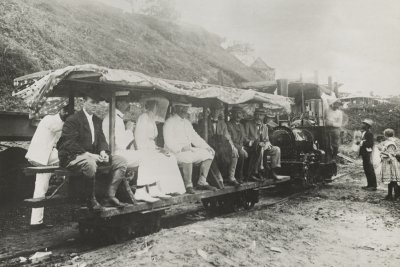Topic: Sargent Shriver
Robert Sargent Shriver, Jr., known as Sargent Shriver, R. Sargent Shriver, or, from childhood, Sarge, (pronounced /ˈsɑrdʒənt ˈʃraɪvər/; November 9, 1915 – January 18, 2011) was an American statesman and activist. As the husband of Eunice Kennedy Shriver, he was part of the Kennedy family, serving in the Kennedy and Johnson administrations. Shriver was the driving force behind the creation of the Peace Corps, founded the Job Corps, Head Start and other programs as the "architect" of Johnson's "War on Poverty" and served as the United States Ambassador to France. During the 1972 U.S. presidential election, he was George McGovern's running mate as the Democratic Party's nominee for U.S. Vice President, replacing Thomas Eagleton who had resigned from the ticket.
Shriver was born in Westminster, Maryland, to Robert Sargent Shriver, Sr., and his wife Hilda Shriver. Of partial German ancestry, the Shriver (originally Schreiber) family are descendants of David Shriver, who signed the Maryland Constitution and Bill of Rights at Maryland's Constitutional Convention of 1776. He spent his high school years at Canterbury School in New Milford, Connecticut, which he attended on a full scholarship. He was in Canterbury's baseball, basketball, and football team, became the editor of the school's newspaper, and participated in choral and debating clubs. After he graduated in 1934, Shriver spent the summer in Germany as part of the Experiment in International Living, returning in the fall of 1934 to enter Yale University. He received his bachelor's degree in 1938, having been a member of the Delta Kappa Epsilon fraternity (Phi chapter) and the Scroll and Key Society. He was chairman of the Yale Daily News. Shriver then attended Yale Law School, earning an LL.B. degree in 1941.
An early opponent of American involvement in World War II, Shriver was a founding member of the America First Committee, an organization started in 1940 by a group of Yale law students, also including future U.S. President Gerald Ford and Supreme Court Justice Potter Stewart, that tried to keep the United States out of the European war. Nevertheless, Shriver volunteered for the United States Navy before the attack on Pearl Harbor, saying he had a duty to serve his country even if he disagreed with its policies. He spent five years on active duty, mostly in the South Pacific, serving aboard the USS South Dakota (BB-57), reaching the rank of lieutenant (O-3). He was awarded a Purple Heart for shrapnel wounds he received during the bombardment of Guadalcanal.
It uses material from the Wikipedia article "Sargent Shriver."






